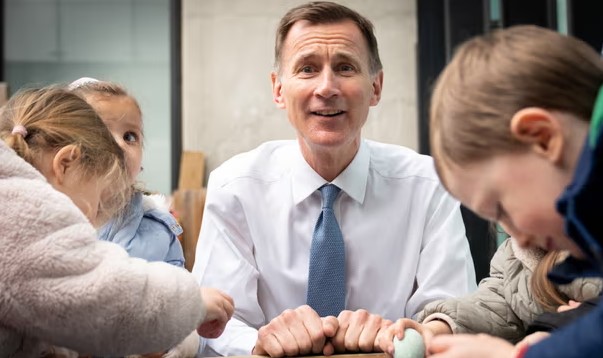Free childcare! Thirty hours a week from nine months until primary school was the eye-catcher in the chancellor’s spring budget. Was this, finally, Scandinavian-quality nurseries? No, sadly.
A groan of despair rippled through the stricken early-years sector when the autumn statement at last revealed which nurseries will get to deliver this. Free? Only if parents can find a place. Many nurseries have been unable to survive on government rates, with a 50% rise in closures in the last financial year. Ofsted reports a net loss of 400 nurseries in a year, and tens of thousands of places gone. The Early Years Alliance’s own charitable nurseries have only 42 left out of 132, which operate in deprived places that the New Economics Foundation calls childcare “deserts”.
To understand the government’s attitude, look closely at its language. Note how it calls it “childcare”: a babysitting service, not nursery or early-years education. Note how it never mentions children’s wellbeing: the chancellor’s budget speech spoke only of the economy’s “million vacancies”, the need for “tackling labour shortages” and getting more mothers back into work. “For many women, a career break becomes a career end,” he said. This is economics, not education or social policy.
Labour’s largely lost Sure Start programme led to the creation of 3,500 centres to nurture families and children and focus on child development. Research shows that a child’s critical first years all but determine their future: Sure Start aimed to narrow the gap between the most disadvantaged children and the rest before primary school. Sure Start centres were a haven for families with any problems, or just places for comfort, company and advice. There were health visitors too, as well as trained nursery teachers, parent-run drop-in cafes, parenting groups, English language classes and employment advice – but they were mostly swept away in 2010 by the brutal cuts of Michael Gove and George Osborne. Rather predictably, the educational gap between rich and poor children has widened since then.
Under this government, perversely, children of the most disadvantaged families don’t qualify for Jeremy Hunt’s free “childcare”. To be eligible, both parents – or the single parent – must work at least 16 hours a week. But that rules out many families with all manner of problems and obstacles whose children need early help the most – and ignores the evidence that underpins programmes such as Sure Start. US research followed poor children on an early-years programme for 30 years. Every $1 spent on intensive early support saved $16 later in life, as those children needed less social security or mental health care; and fewer committed crimes, with more of them in work and able to own their own homes.


